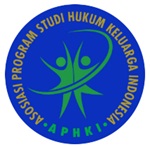Judicial Considerations in Granting Interfaith Marriage Applications: A Critical Study of Bandung District Court Decision No. 166/Pdt.P/2022/PN.Bdg within the Framework of Indonesian Marriage Law and Human Rights
DOI:
https://doi.org/10.29240/berasan.v4i1.13438Keywords:
Interfaith marriage, Bandung District Court, Human rights, Indonesian Marriage LawAbstract
This article critically examines the Bandung District Court Decision No. 166/Pdt.P/2022/PN.Bdg, which granted an interfaith marriage application despite the absence of explicit legal provisions in Indonesian Marriage Law No. 1 of 1974 and the Compilation of Islamic Law (KHI). Employing a normative juridical method with a library research approach, this study analyzes statutory regulations, judicial practices, and scholarly literature related to marriage law, interfaith unions, and human rights. The findings demonstrate that while Indonesian marriage law emphasizes religious conformity as the legal basis for marriage validity, the court employed judicial activism to justify the registration of interfaith marriages through civil administration, citing the principles of human rights and freedom of religion enshrined in the 1945 Constitution. This decision reflects ongoing legal pluralism in Indonesia, where religious norms and state law often intersect and conflict. The article argues that such judicial practices, though aimed at protecting constitutional rights, create legal uncertainty and social controversy, particularly regarding the legitimacy of interfaith marriages under Islamic law. The contribution of this study lies in highlighting the judicial role in navigating tensions between religious doctrine, constitutional rights, and legal certainty in a plural society, offering insights into the need for harmonization between state and religious laws in Indonesia.
Downloads
References
A. Mukti Arto. Praktik Perkara Perdata Pada Peradilan Agama. yogyakarta: pustaka pelajar, 1998.
Caniago, Sulastri. “PENCATATAN NIKAH DALAM PENDEKATAN MASLAHAH Sulastri Caniago.” Juris 14, no. 2 (2015): 75–87.
Mu’i, Fathul. “Reinterpretasi Nafkah Dalam Undang-Undang Perkawinan Dan Implikasinya Terhadap Ketahanan Keluarga Di Masa Dan Pasca Covid-19.” International Conference on Islam, Law, and Society (INCOILS), 2021, 1–12. https://www.incoilsfdpdiktis2021.iaipd-nganjuk.ac.id/index.php/incoils/article/view/125.
Mudaris, Hudan. “Islam, Jender Dan Hukum Islam ; Diskursus Kesetaraan Jender Dalam Perspektif Hukum Islam,” June 1, 2015.
Sunarto, Muhammad Zainuddin, and Mohamad Syariful Umam. “Implikasi Kafaah Terhadap Maraknya Pernikahan Dini.” PALAPA 11, no. 1 (May 1, 2023): 391–406. https://doi.org/10.36088/PALAPA.V11I1.2836.
Susi Susanti. “Modifikasi Ijtihad Hakim Pengadilan Agama Dan Relevansinya Terhadap Hukum Islam.” Al-Qisthu 17, no. 1 (2019): h. 27-33.
Downloads
Published
Issue
Section
Citation Check
License
Copyright (c) 2025 Pijri Paijar

This work is licensed under a Creative Commons Attribution-NonCommercial-ShareAlike 4.0 International License.
Authors who publish with Berasan: Journal of Islamic Civil Law agree to the following terms:
- Authors retain copyright and grant the journal right of first publication with the work simultaneously licensed under a Creative Commons Attribution-NonCommercial-ShareAlike 4.0 International License (CC BY-NC-SA 4.0) that allows others to share the work with an acknowledgment of the work's authorship and initial publication in this journal.
- Authors are able to enter into separate, additional contractual arrangements for the non-exclusive distribution of the journal's published version of the work (e.g., post it to an institutional repository or publish it in a book), with an acknowledgment of its initial publication in this journal.
- Authors are permitted and encouraged to post their work online (e.g., in institutional repositories or on their website) prior to and during the submission process, as it can lead to productive exchanges, as well as earlier and greater citation of published work (See The Effect of Open Access).








